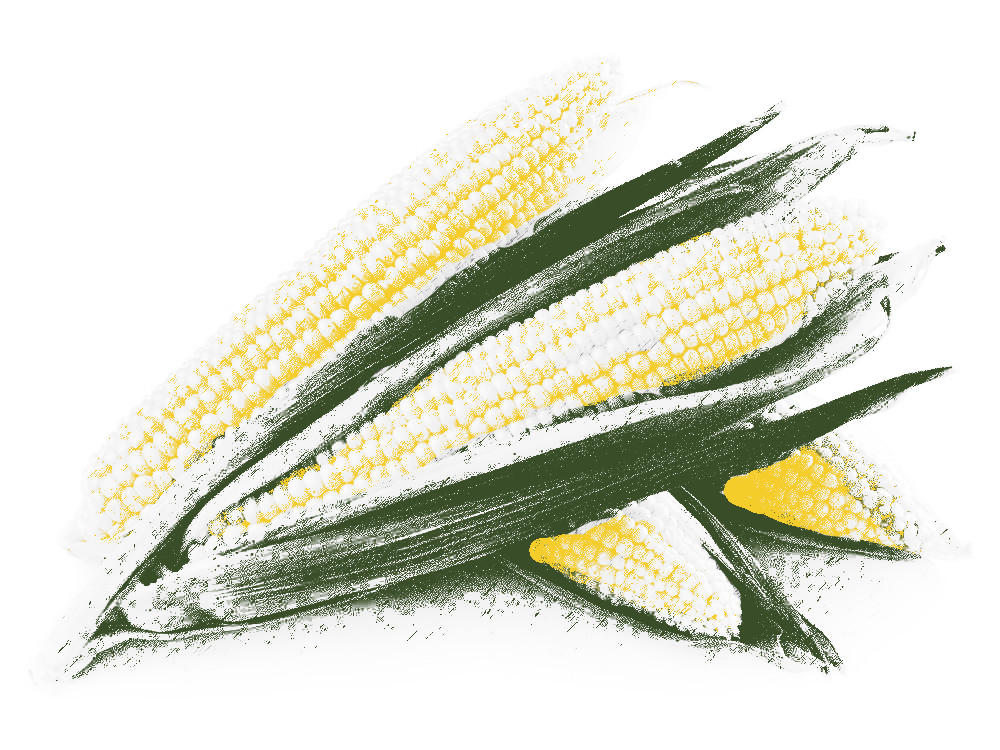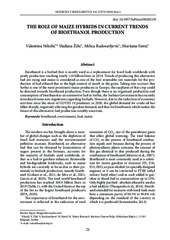Приказ основних података о документу
The role of maize hybrids in current trends of bioethanol production
| dc.creator | Nikolić, Valentina | |
| dc.creator | Žilić, Slađana | |
| dc.creator | Radosavljević, Milica | |
| dc.creator | Simić, Marijana | |
| dc.date.accessioned | 2022-04-21T09:54:53Z | |
| dc.date.available | 2022-04-21T09:54:53Z | |
| dc.date.issued | 2021 | |
| dc.identifier.issn | 0354-5881 | |
| dc.identifier.uri | http://rik.mrizp.rs/handle/123456789/852 | |
| dc.description.abstract | Bioethanol is a biofuel that is mostly used as a replacement for fossil fuels worldwide with yearly production reaching nearly 110 billion liters in 2019. Trends of producing this alternative fuel are rising and maize is considered as one of the best renewable raw materials for the production of fuel ethanol due to the high content of starch in the grain. Taking into account that Serbia is one of the most prominent maize producers in Europe, the surpluses of this crop could be directed toward bioethanol production. Even though there is no organized production and consumption of bioethanol as an automotive fuel in Serbia, the Serbian Government has recently introduced some new regulations regarding biofuels. However, due to the reduction of economic activities since the onset of the COVID-19 pandemic in 2020, the global demand for crude oil has fallen sharply, negatively affecting the gasoline demand, and thus bioethanol, which makes the future of this alternative fuel production notably uncertain. | sr |
| dc.description.abstract | Bioetanol je biogorivo koje se uglavnom koristi kao zamena za fosilna goriva širom sveta, a godišnja proizvodnja dostigla je gotovo 110 milijardi litara u 2019. godini. Trendovi proizvodnje ovog alternativnog goriva rastu, a kukuruz se smatra jednom od najboljih obnovljivih sirovina za proizvodnju bioetanola zahvaljujući visokom sadržaju skroba u zrnu. Uzimajući u obzir da je Srbija jedan od najistaknutijih proizvođača kukuruza u Evropi, viškovi useva ove poljoprivredne kulture mogli bi se usmeriti ka proizvodnji bioetanola. Iako u Srbiji ne postoji organizovana proizvodnja i potrošnja bioetanola kao transportnog goriva, Vlada Republike Srbije nedavno je usvojila nekoliko novih uredbi u vezi sa stavljanjem u promet, obeležavanjem i potrošnjom biogoriva. Međutim, zbog smanjenja ekonomskih aktivnosti od početka pandemije virusa COVID-19 tokom 2020. godine, globalna potražnja za sirovom naftom naglo je opala, što je negativno uticalo na potražnju za benzinom, a time i za bioetanolom, zbog čega je budućnost proizvodnje ovog alternativnog goriva za sada u velikoj meri neizvesna. | sr |
| dc.language.iso | sr | sr |
| dc.language.iso | en | sr |
| dc.publisher | Belgrade : Serbian Association of Plant Breedings and Seed Producers | sr |
| dc.publisher | Beograd : Društvo selekcionara i semenara Republike Srbije | sr |
| dc.relation | info:eu-repo/grantAgreement/MESTD/inst-2020/200040/RS// | sr |
| dc.rights | openAccess | sr |
| dc.rights.uri | https://creativecommons.org/licenses/by/4.0/ | |
| dc.source | Selekcija i semenarstvo | sr |
| dc.subject | bioethanol, environment, fuel, maize | sr |
| dc.subject | bioetanol, gorivo, kukuruz, životna sredina | sr |
| dc.title | The role of maize hybrids in current trends of bioethanol production | sr |
| dc.type | article | sr |
| dc.rights.license | BY | sr |
| dc.citation.volume | 26 | |
| dc.citation.issue | 2 | |
| dc.citation.spage | 21 | |
| dc.citation.epage | 29 | |
| dc.identifier.doi | 10.5937/SelSem2002021N | |
| dc.identifier.fulltext | http://rik.mrizp.rs/bitstream/id/4350/0354-58812002021N.pdf | |
| dc.type.version | publishedVersion | sr |


